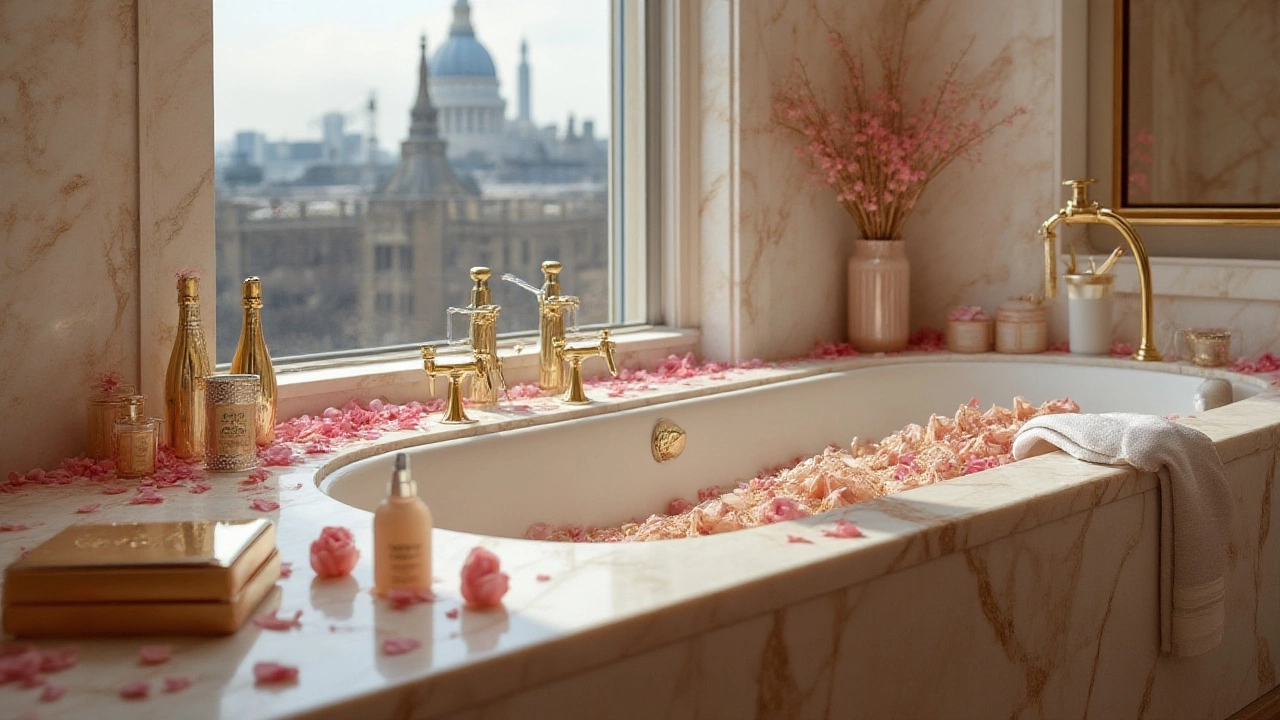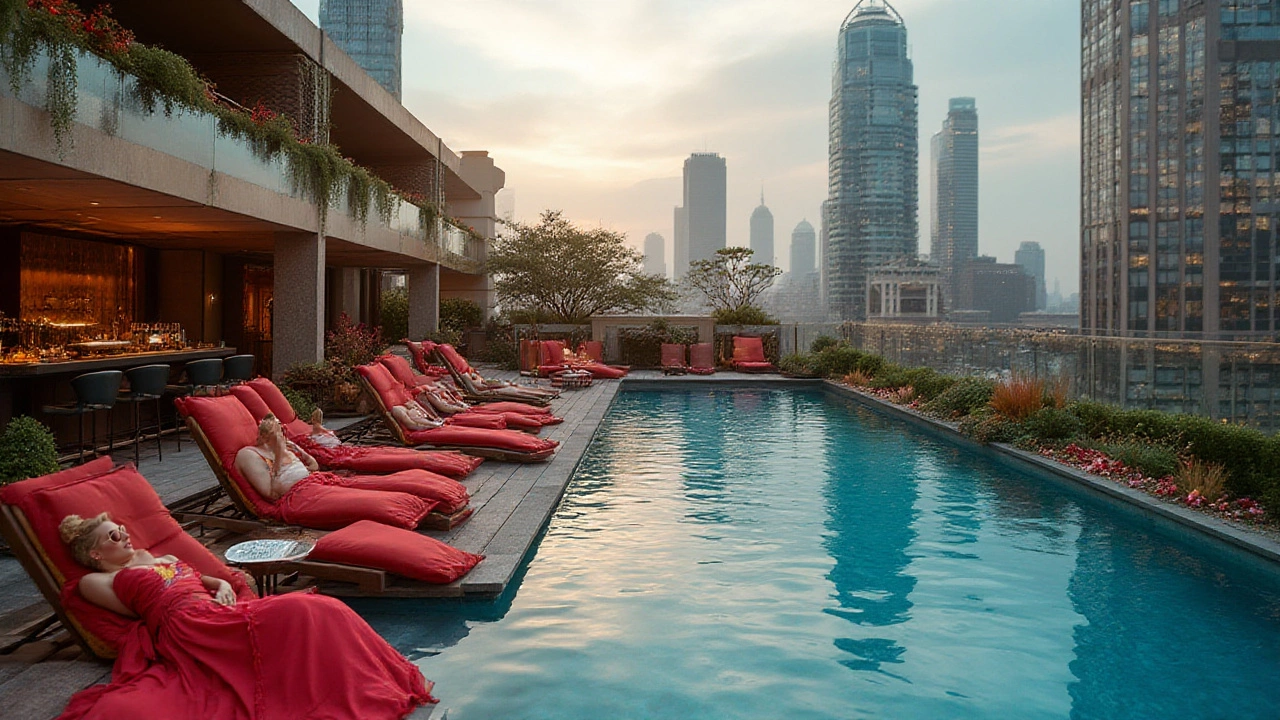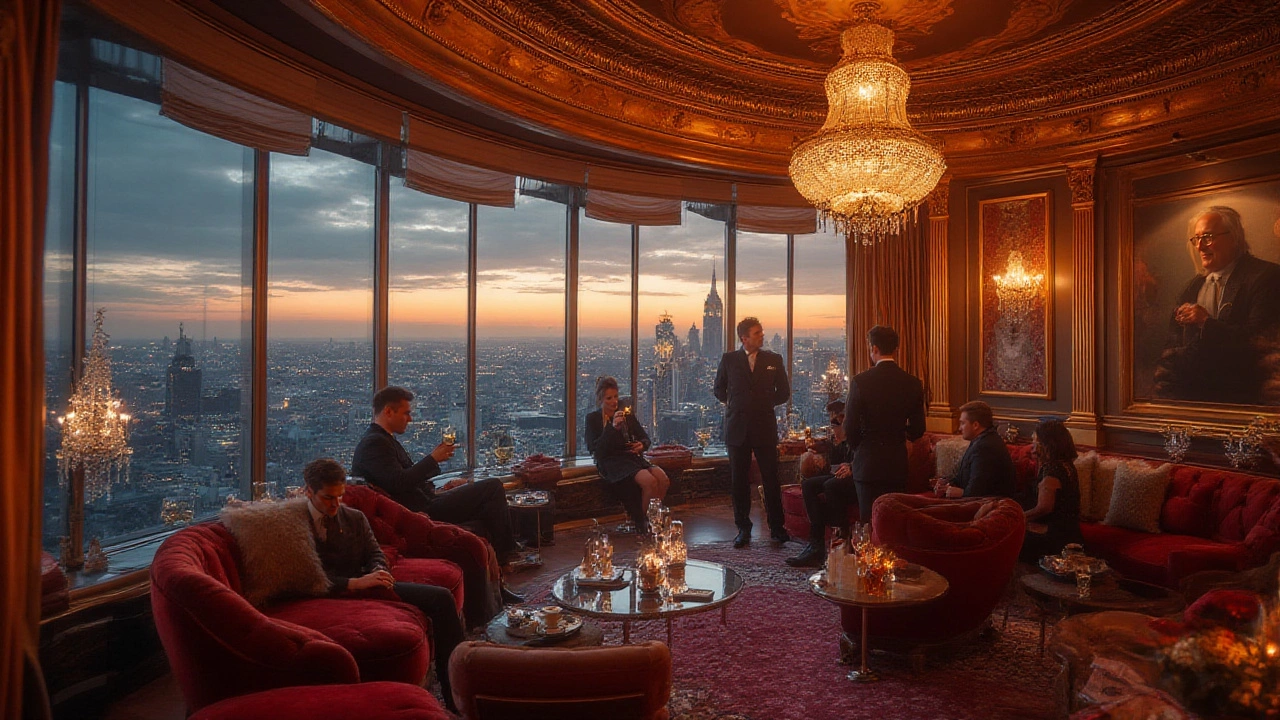There’s a hotel room in Dubai with a private elevator, rotating bed, gilded iPad, and a 24/7 butler who’d probably tie your shoes if you asked. The nightly price? You could buy a tiny house for less. It’s not just expensive, it’s a statement—luxury hotels have become icons, playgrounds, and sometimes even punchlines. But peel back the curtains on their platinum suites, and you find more than marble and Versace: you get bizarre spa treatments, secret menus, pillow concierges, and stories that sound like urban legends. This isn’t about where celebrities vacation—it’s about inventing a kind of fantasy living, just for a night. So, which hotel takes the gold medal for pure luxury?
Inside the Icons: The Race for the Title of Most Luxurious Hotel
Ask anyone in the luxury travel industry, and you’ll get the same name whispered: Burj Al Arab Jumeirah. The sail-shaped hotel, sitting on its own private island off the Dubai coast, has redefined what extravagant really means since it opened in 1999. It claims seven stars—a rating hotels technically can’t get, but it’s so far above the rest someone made up a new tier. The hotel’s Royal Suite spreads over two floors, has a rotating canopy bed, a private cinema, and 17 types of pillows to choose from (is your back ready for the camel wool blend?). The décor makes Versailles look humble—think golden columns, a staircase made from marble imported from Brazil and Italy, Swarovski crystal chandeliers, and a 24-carat gold iPad for each guest. Seriously. And yes, the staff-to-guest ratio is about 8 to 1, so you’ll never pour your own water.
Of course, Burj Al Arab hardly corners the market. In New York, suites at The Mark offer a 10,000-square-foot penthouse with a rooftop terrace bigger than most people’s homes. The Penthouse at The Hotel President Wilson in Geneva has bullet-proof windows, rare art collections, a 22-seat dining room, and costs over $80,000 per night. Over in the Maldives, Cheval Blanc Randheli’s Owner’s Villa sits on its own island, with a team that includes its own chef, spa therapist, and even a tennis pro. If you’re looking for ice, the Icehotel in Sweden rebuilds its luxury suites annually out of snow and ice from the Torne River. Each of these places offers a different flavor of luxury: privacy, danger, spectacle, or nature—sometimes all at once.
The cost isn’t just for the soaring ceilings and ocean views. Guests at these places expect experiences: underwater suites at Atlantis The Palm, Michelin-starred in-room dining at Aman Tokyo, helicopter transfers, pet concierges for your Shih Tzu, private underwater concerts in the Maldives (Absolut truth at the Conrad Rangali). It’s about providing whatever you can imagine, and then surprising you with things you didn’t expect. Some hotels keep entire staff on hand simply to run your bath, pick the perfect bubble blend, and finish with rose petals.
There’s a certain theater to all this. The Peninsula Hong Kong offers Rolls-Royce Phantoms and helicopter landing pads, while at the Ritz Paris, a €2,600 cocktail comes with a piece of diamond jewelry at Bar Hemingway. If you’re a fan of spa treatments, the Four Seasons George V in Paris has private treatment rooms larger than city apartments. Each of these hotels is designed so guests never have to touch a doorknob, call a cab, or even fill out their own breakfast form. Privacy is paramount—celebrities, royalty, and billionaires breeze in and out, shielded from cameras, handled by staff who know when not to talk. The level of discretion is so high, even repeat guests have private entrances and bespoke security measures—and nobody brags. Well, not out loud.
Trying to compare these hotels is like trying to pick the world’s most luxurious car or the world’s best caviar. Everyone has a stake. But for pure wow-factor, Burj Al Arab remains the benchmark. It’s bold, over-the-top, unapologetic, and feels almost theatrical in its approach to pampering guests. It’s the hotel you mention when you want to end a debate on luxury.

What Makes a Hotel Luxurious? Secrets Behind the Experience
You might think it’s just about thread count, gold-plated everything, or celebrity chef restaurants. But the hospitality world chases a different kind of perfection. The most luxurious hotels invest in crafting an experience so seamless that guests forget about inconvenience—and reality—for a while. Imagine tapping a button from your soaking tub in Tokyo or Paris and having your favorite song float in, dinner arrive precisely when you crave it most, and the lights dim to your sleep preference, all without anyone knocking on your door. That’s not just technology—that’s anticipation.
Staff training is secret sauce here. It’s not just about knowing guest names or allergies (although that’s standard), it’s about predicting moods and staying invisible until needed. At Aman resorts, staff shadow guests so discreetly they’re often only spotted when a need arises—fresh towels, sunscreen, a perfectly-timed snack. Ritz-Carlton is famous for its “wow stories”—employees are actually empowered to spend up to $2,000 solving guest problems or creating special moments—no questions asked. Burj Al Arab’s famed butlers reportedly memorize guest preferences before you arrive: how you take your coffee, what wine you prefer, your favorite flowers, or even how you like your towels folded. The difference is in the details, and these places have built their legends on obsessive personalization.
The amenities game goes well beyond spas and infinity pools. Try underwater dining at Ithaa in the Maldives, 167 feet below sea level at Conrad’s Muraka suite, or reserved opera suites at the Bayerischer Hof in Munich—a favorite of A-list performers. Some hotels, like Emirates Palace in Abu Dhabi, offer gold vending machines (for the discerning traveler who might need a bar of gold on short notice), while the Mandarin Oriental in Bangkok lets guests order custom-tailored pajamas upon arrival. Want to swim in your room? The St. Regis Maldives’ John Jacob Astor Estate offers private pools, slides, and even your own beach.
Services often go beyond your wildest wishes. At some Aman hotels in Bhutan and Japan, staff have organized impromptu fireworks, hunting expeditions, even surprise winter gardens blooming in the heart of summer, just for one guest. The Mark Hotel in New York has a Jean-Georges private chef and exclusive access to Bergdorf Goodman after hours—because you might want to try on diamonds at midnight. At Rosewood Hong Kong, each suite is serviced by a fragrance butler, offering dozens of scents to match your mood or the city’s vibe. And while you’re at it, have your dog book a massage, too.
Most luxurious hotel contenders get creative in their quest to outdo each other. The exclusivity extends to food (Nobu Matsuhisa has served sushi at the One&Only Palmilla’s presidential villas), signature scents, and even proprietary sleep podcasts. Some carry partnerships with luxury fashion brands—Gucci, Fendi, Versace, you name it—for in-room amenities and hotel uniforms. Some even offer unlimited spa access or personal trainers who’ll design your entire wellness plan. It’s a constant game of one-upmanship.
If you love data, check this out:
| Hotel | Signature Suite Nightly Price (2025 USD) | Specialty |
|---|---|---|
| Burj Al Arab (Dubai) | $28,000 | 24K gold, 2-story suite, private butler |
| Mark Hotel (NYC) | $75,000 | Penthouse, rooftop terrace, private chef |
| Hotel President Wilson (Geneva) | $82,000 | Entire floor, bulletproof glass, lake views |
| Cheval Blanc Randheli (Maldives) | $45,000 | Private island, butler, chef, spa therapist |
| Four Seasons George V (Paris) | $26,000 | Palatial suite, Paris views, 3 Michelin stars |
| Emirates Palace (Abu Dhabi) | $17,000 | Gold vending, private beach, luxury transfer |
Truth is, these hotels set the bar for service, comfort, and spectacle—and each tries to top the other in little touches. For those who can afford it, the price isn’t about the bed or even the views; it’s the private world they get to inhabit, however briefly, with no interruptions from the outside.

Insider Tips for Experiencing Luxurious Hotels (Without Selling a Kidney)
Visiting jaw-dropping hotels isn’t just for the rich and famous—at least, not always. There are ways to get a taste of the good life without maxing out ten credit cards. Start with off-peak bookings: even the Burj Al Arab comes down in price between June and August (though “deal” is a strong word). Signing up for luxury hotel loyalty programs, like Marriott Bonvoy or Hilton Honors, can open doors to upgrades, breakfast perks, and sometimes even a stay using accumulated points. Some credit cards give sneaky access to invitation-only hotel perks—early check-in, late check-out, spa credits, or a room upgrade at check-in.
Branch out: many famous hotels allow non-staying guests to book spa days, high teas, and exclusive dinners. Burj Al Arab’s afternoon tea gets you into the iconic atrium and some serious bragging rights for a fraction of the price of a suite. If you’re celebrating something special, dropping a hint at booking can sometimes earn an upgrade—five-star hotels love to wow honeymooners, birthday guests, or returning visitors who can show enthusiasm for the hotel’s quirks or history. Tip: Be polite, engaging, and let staff know if you’re a first-timer. You might get a surprise.
Want to bathe in gold without the five-figure room key? Emirates Palace serves up golden cappuccinos in their café—literally sprinkled with edible gold leaf, and you don’t have to be a guest to try it. At some Paris palaces, you can book a spa day or reserve a table in Michelin-starred restaurants, often paired with tours of their historic ballrooms and secret gardens. In Vegas, the Sky Villas at Palms and the Encore Three-Bedroom Duplex offer off-season packages and midweek deals far below the sticker price—it pays to be flexible.
The sweet spot is experience, not just the suite. Instead of splurging for the full presidential suite, look for rooms that share the same amenities—think spa access, club-level lounges, or stunning views. Many luxury hotels also offer “residences” or apartments with a kitchenette and butler, sometimes at lower prices for longer stays. Don’t skip reading guest reviews: sometimes, the entry-level room gets you everything but the Instagram view. And if you ever want to feel like royalty without the cost, afternoon high tea in London at The Ritz or Claridge’s is a classic move, trays of pastries and finger sandwiches included.
If you’re determined to check the world’s most iconic luxury hotels off your bucket list, plan ahead. Many open bookings 12 months in advance for suites. Watch for flash sales, last-minute deals on booking platforms, or travel agent exclusives—they do exist, and luxury travel forums sometimes share codes and special links. If you get addicted to luxury, consider city destinations where competition is fierce and rates are more dynamic: Hong Kong, Dubai, Paris, and—if you don’t mind winter—Geneva in January. That’s probably the only time a four-figure nightly rate might dip.
The fun part? Even a single night in a legendary hotel is like living in a movie. Whether you’re swirling rose petals in a marble tub or sipping vodka next to a gold vending machine, you’re tasting the high life—if only for a moment. Travel is about stories, and few stories beat telling your friends you had to call a butler to find the TV remote buried in a mountain of silk pillows.
